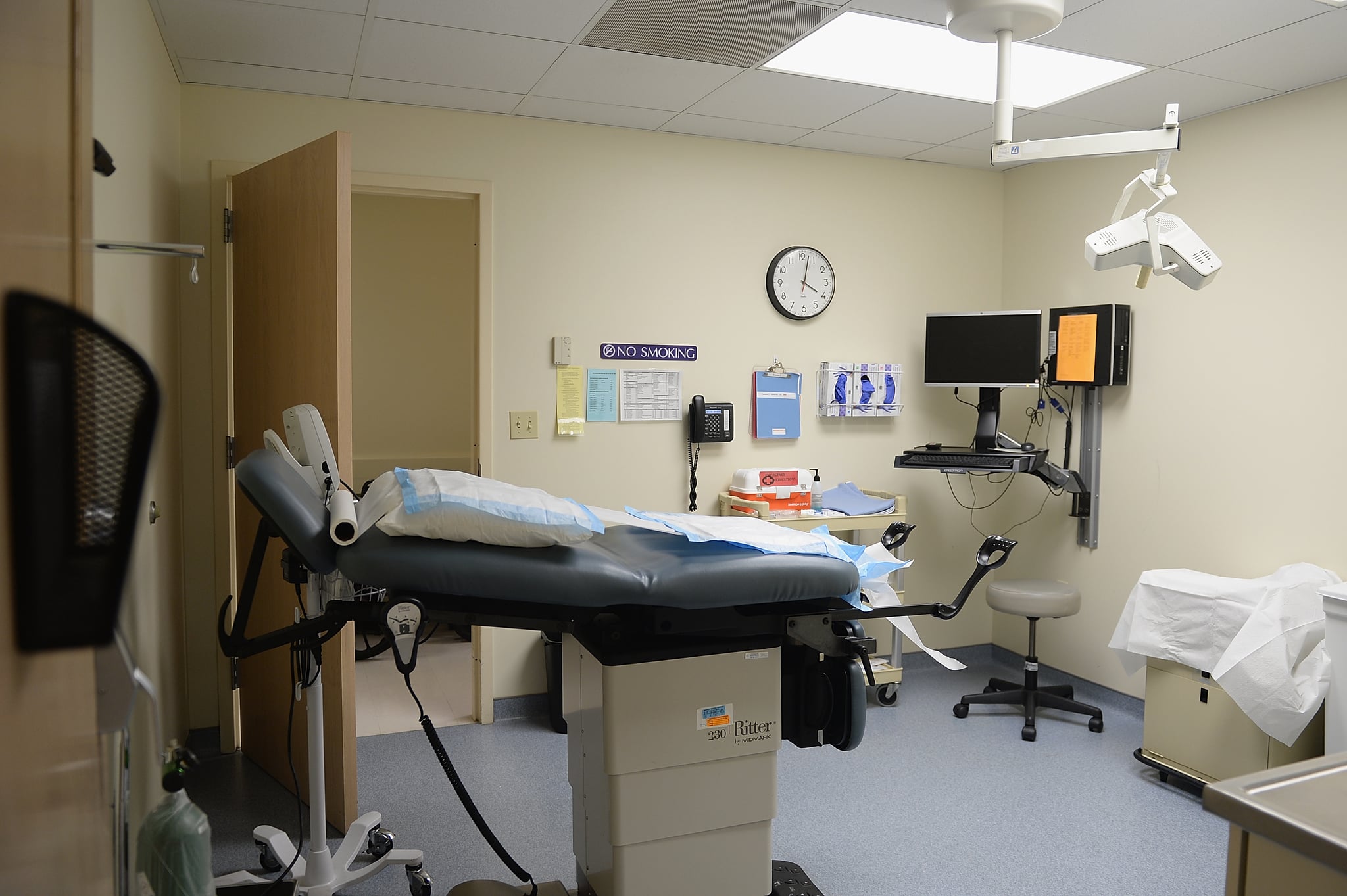When Nancy Davis was denied an abortion for a nonviable fetus in her home state of Louisiana in 2022, she took her story to media outlets in an attempt to draw attention to what she sees as a fundamental injustice that disproportionately affects Black women like her. Davis, the mother of an 18-year-old, a 14-year-old, and a 2-year-old, is now an outspoken advocate for reproductive justice. She formed the Nancy Davis Foundation to help other women in similar situations. As part of that work, she has organized the upcoming Voices For Change March on Baton Rouge, which falls on Jan. 21, a day before the anniversary of Roe v. Wade.
Davis told us about the trauma of being denied critical healthcare, what it was like to travel out of state to obtain her abortion, and why she continues to use her voice for others. Read it all, in her own words, below.
Last year, my fiancé and I faced an extremely challenging and distressing situation. To make a painful story short, I was denied an abortion for a nonviable fetus. Our fetus was diagnosed with acrania, which refers to the absence of the skull. The doctor pretty much told me that if I continued to carry the pregnancy, she would die within minutes, if not be stillborn. Initially he told me that procedure could be done, but later, whenever I tried to schedule the appointment, we were told we were denied due to the fetus still having a heartbeat and Louisiana’s abortion bans. Louisiana had exceptions in place, but the hospital director didn’t want to risk it — I guess due to them being scared and confused, they pretty much told us the closest place to get an abortion would be Florida. And they wished us well.
“[I]t was like my heart was ripped out of my body.”
I just could not believe it. It was already hard enough dealing with the fact that my baby wasn’t going to make it. This was a wanted pregnancy; this was a planned pregnancy. So it was like my heart was ripped out of my body, literally. And even in the ultrasound room — I’m not crazy, but anyone could see on the ultrasound picture that something was awfully wrong. You could only see half of the head. So to digest that as well as being denied healthcare and having to go to a whole different place where I wasn’t comfortable — leaving my family, leaving my children — it was so traumatic. I was emotional the entire time. I felt like we were being left to fend for ourselves in a very hostile environment.
We scheduled appointments in Florida and North Carolina, because those were the two places closest to Louisiana. We were thinking about driving there. But once everything settled with me, I went to the news station. I just felt like it was wrong and my voice needed to heard. And I knew if I was going through it, other people were going through it, whether it was at that very moment or in the future. I just had to speak up and speak out for myself. And my story went viral. I received so much support.
So I contacted Planned Parenthood of Greater New York, and they contacted The Brigid Alliance. And they literally took care of everything. I didn’t have to worry about having to book our flights, book hotels. They gave us a childcare stipend, a meal stipend. They literally took care of us. I’d been utilizing Planned Parenthood services in Baton Rouge since I became sexually active, you know, 17 or 18. There were times when I didn’t have insurance, and they would still give me the care that I needed and deserved — cervical exams, STD testing, birth control. So when this situation came about and I was researching and I saw Planned Parenthood of New York, I felt comfortable going to them.
I didn’t have the resources to get the care. If I hadn’t gone public with it and reached out to Planned Parenthood — that was my whole reasoning to going to the news station. I didn’t have the resources. It was like a cry for help, as well as putting these type of situations on notice. That’s why I also feel a sense of obligation to speak out to help as many others as I possibly can. I started the Nancy Davis Foundation for people who are in similar situations. We assist individuals who have experienced trauma as a result of a developmental defect in pregnancy, and we provide support for medical pregnancy terminations.
“I didn’t want to carry my baby to bury my baby.”
My whole saying has been: I didn’t want to carry my baby to bury my baby. That’s something I feel like I was being forced to do, and it was just something that under no circumstances was I going to do. But these laws are controlling our lives, and it’s putting our lives in danger. And not only is it hurting us, but it’s hurting our loved ones too. Like my 14-year-old daughter, we still have conversations and she breaks down and cries about it to this day. My mom still breaks down too and cries to this day about it. It is definitely hurting others.
So we all need to speak up and speak out. Women need to do what’s best for them. Just because you live in a state with an abortion ban does not mean you have to put yourself through trauma.
Image Source: Getty / Michael B. Thomas
